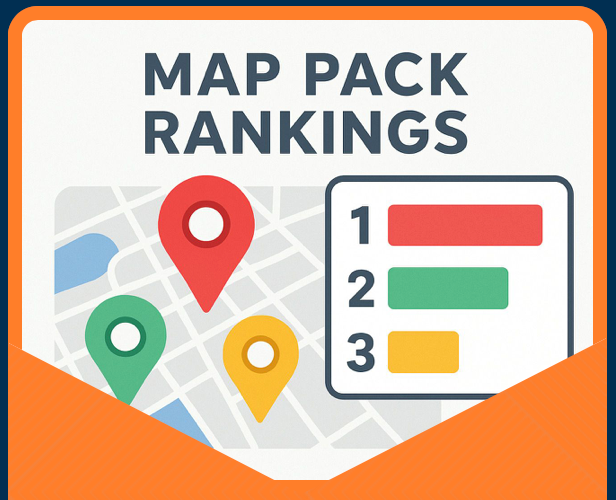
Cary Byrd // Founder of CinchLocal

Maximize Your Visibility with Schema Markup for Local SEO
Want to rank higher in local search results? Schema markup for local SEO can make your business more visible online. This article explains how to use schema markup to improve search engine understanding and attract more local customers.
Key Takeaways
- Schema markup is essential for local SEO as it helps search engines better understand your business details, enhancing visibility and attracting local customers.
- Using nested schema provides a clearer and more interconnected representation of your business, improving SEO performance compared to stacked schema.
- Regularly updating and testing your schema markup is crucial for maintaining accuracy and maximizing its effectiveness in gaining rich results and higher search rankings.
Understanding Schema Markup for Local SEO
Schema markup is a type of schema code designed to classify the data on your website. Its fundamental role is to offer structured data which aids search engines in better grasping the content, connections, and context found on a webpage. By utilizing structured data markup codes, schema markups improve how well search engines understand your site and augment the way your business is presented within search results.
For those focusing on local SEO, schema markup proves to be exceedingly beneficial. The use of local business schema allows search engines to more effectively comprehend and list your enterprise by highlighting essential information such as location details, methods of contact, and available services. This specific kind of structured data assists both local SEO specialists and search engine platforms like Google in properly categorizing details about businesses enhancing their prominence in searches, leading possibly towards improved rankings.
Incorporating local business schema into your site can elevate its visibility as well as engagement levels shown within the outcomes provided by various search engines. When you present precise structured information regarding what you have to offer it simplifies the process for these platforms reading accurately representing webpages linked with said company’s digital presence which leads us back full circle enriching listings that inform potential customers directly from their initial query result thus making them stand out amongst others encouraging higher click-through rates.
The Importance of Schema in Local SEO
Incorporating schema markup into your website improves how search engines interpret the content, which can help your business feature prominently in rich snippets and local packs on search engine results pages (SERPs). The advantage of this is that it increases the prominence of your site to potential local customers who are actively seeking out the services you offer.
By using schema markup, you’re likely to see an improvement in click-through rates (CTR) because it allows for more detailed information to appear right within the search results. Enhanced listings with features like star ratings and business specifics make your entry pop against competitors’, thereby drawing more users to click through to your website. This not only funnels additional traffic, but also fosters trust among prospective clients.
Lastly, presenting structured data effectively communicates to search engines that your site is a trustworthy source pertinent for local searches. This aids in achieving superior ranking positions while ensuring precise representation of your enterprise in searches. Major players such as Google depend on local schema markup when sorting and showcasing relevant details, establishing its importance as an essential element in any robust strategy aimed at optimizing for local SEO.
Nested Schema vs. Stacked Schema:
Which is Better?
Grasping the distinction between nested and stacked schema structures is crucial when applying schema markup. In a stacked setup, each entity is marked up individually, with no clear connections outlined among them. Although this technique conveys structured data to search engines, it may obscure how entities relate to one another, which might not be as effective in optimizing your local schema markup.
Conversely, nested schema employs the @graph property to forge explicit links amongst related entities within a tiered framework. For instance, you can embed a “LocalBusiness” entity within an “Organization,” which itself could encompass additional “Service” and “Review” entities.
Such an interlinked approach provides search engines with a more complete insight into your business’s structure. Thus bolstering its SEO standing. Due to its capacity for delivering detailed and coherent representations of your company’s information network online – nestled under respective parent items, nested schemas are regarded as superior for articulating local business details effectively through schema markup.
Benefits of Implementing Local Business Schema Markup
Utilizing local business schema markup can considerably bolster your digital footprint. This strategic implementation improves the prominence of a local business in search engine results, which simplifies discovery for prospective patrons by potentially elevating its ranking within search engine results pages (SERPs).
It opens doors to featuring prominently as rich results, including appearances in Google’s Knowledge Graph and highlighted snippets. Such enriched content gives consumers immediate access to critical details about your enterprise directly through their search results, thus enhancing the likelihood they’ll engage with services such as bookings or orders. A practical example is that of a restaurant observing increased patronage upon integrating event schema into its promotions. This underscores how specific event data relayed via search outcomes can drive attendance.
To these advantages, businesses employing local business schema often notice an upsurge in organic traffic coupled with heightened click-through rates. The inclusion of rich snippets garnered from schema markup markedly amplifies user engagement by delivering vital information upfront on the SERP itself. For instance, after adding review schema to their online listing detail page – showcasing customer reviews and ratings visibly – a service provider noted an uptick not only in clicks but also in trust among users who tend toward listings that exhibit transparent feedback scores.
Key Schema Types for Local Businesses
Incorporating the LocalBusiness schema into your website is essential for improving visibility and rankings in local search queries. By using specific subtypes within the LocalBusiness structured data, such as ‘Restaurant’ or ‘Store,’ businesses can more precisely define their services, which assists search engines in properly classifying and presenting them to users. For example, roofing contractors would benefit from implementing the ‘Roofing Contractor’ subtype under the broader category of local business structured data.
Including comprehensive details like opening hours and geographic coordinates within your schema markup fosters greater engagement with potential customers. When opening times are clearly marked up through schema, it allows individuals searching online to quickly determine when a business is operational right from their search results—this minimizes confusion and improves their experience. Geographic coordinates play a vital role too by sharpening the precision and contextuality of local searches.
By leveraging the ‘LocalBusiness’ schema type effectively, you highlight critical information about your establishment such as its name, location address contact number, and regular business hours - all directly accessible via search engine results pages (SERPs). For restaurants specifically, adding menu URL’s on any pertinent template may lead diners straight to what’s being served, encouraging visits from those perusing options directly in SERPs.The detailed portrayal achieved through these pieces of structural data boosts not only visibility across searches, but also contributes positively to how end-users interact with listings they come upon during their digital explorations.
How to Choose the Right Schema for Your Local Business
Selecting the most suitable schema type is crucial for aiding search engines in comprehending your local business’s nature, geographic location, and services offered. Roofing contractors should pinpoint key details such as provided services and customer testimonials to identify which schema type best corresponds with their operations. The aim here is to choose a schema category that accurately depicts your enterprise, enhancing how well search engines grasp the content of your site.
Accuracy in applying your schema markup greatly improves its efficiency. In instances where no exact match exists for a schema type for your venture, utilizing either the Local Business or Organization schemas is advisable. For example, roofing contractors without an exact subtype would employ the generic category found at schema.org/localbusiness as their default.
To sustain a robust online footprint amidst changing guidelines and updates to what local businesses offer, it’s vital to routinely refresh one’s scheme markup. This sustains both its precision and pertinence over time. Being meticulous about classifying within niche categories can significantly boost local SEO performance while drawing more potential customers who are looking specifically for what you provide.
Step-by-Step Guide to Adding Schema Markup
Before incorporating schema markup to your website, collect all pertinent information about your local business. This should encompass critical details such as the name of the business, its physical address, contact number, services provided and working hours. Start by pinpointing the most fitting category within local businesses for creating effective local schema markup.
With this data in hand, you can proceed to integrate structured data on your site either through a new script added to the source code or via tools like Schema App. It’s crucial that any schema markup included mirrors precisely what is displayed on your webpage. Doing so aids search engines in better comprehending what you offer and enhances prospects of achieving rich results when searched for.
Finally, delve into understanding how JSON-LD works specifically for crafting schema markups as well as methods of evaluating their precision and impact once they are live on your site.
Using JSON-LD for Schema Markup
Google endorses JSON-LD as the favored format for structured data to optimize search engine visibility. As a Javascript-based notation tailored for schema, JSON-LD allows the incorporation of structured data without altering how content is presented on the webpage. Its efficiency and simplicity in modification surpass that of other formats like RDFa and Microdata, solidifying its status as the preferred method for adding schema markup.
Structured data via JSON-LD is conveyed in a manner hidden from users, which simplifies comprehension and handling of such information. By enabling an unobtrusive addition of structured data, it ensures that website content remains appealing to site visitors while simultaneously providing search engines with vital details necessary to accurately index and showcase your enterprise’s offerings.
Tools for Generating Schema Markup
There are multiple instruments at your disposal to aid in crafting local business schema markup with efficiency. The Structured Data Markup Helper by Google streamlines the creation of structured data for local businesses, while Schema Generators provide intuitive interfaces that facilitate accurate implementation and adherence to Google’s standards.
To verify the accuracy of your local business schema, you can utilize verification tools such as Google’s Rich Results Test and Schema Markup Validator alongside counterparts like Bing’s and Yandex’s validators. With the Rich Results. Test tool specifically, it is possible not only to validate but also preview how search engines will display rich results derived from structured data markup within their search engine results pages (SERPs), confirming proper optimization for enhanced visibility online.
Testing Your Schema Markup
Ensuring the precision and functionality of your schema markup is vital, and leveraging tools such as Google’s Rich Results test is vital. Test can assist in validating your structured data. By inserting the code into this tool prior to incorporating it on your site, you can detect any potential mistakes or cautionary signals.
Typical pitfalls encountered during schema markup evaluation include syntax errors arising from JavaScript or JSON-LD formats. These inaccuracies within structured data hinder the display of rich results within Google Search results. While warnings are not uncommon and do not obstruct the emergence of rich results, rectifying all errors in schema markup boosts your likelihood of securing these enhanced listings, thereby bolstering local SEO endeavors.
Enhancing Schema Markup with Additional Properties
Incorporating additional properties into your schema markup provides a detailed depiction of your enterprise, enabling potential customers to access crucial information with ease. Continually refreshing your schema markup can boost its online presence and draw in local clientele. Enhancing the schema with elements such as reviews, Q&A sections, and FAQ pages significantly improves the richness of the data provided.
Integrating FAQs within your schema markup is an effective strategy for setting your business apart from rivals who may not utilize this feature. Employing schema markup that includes reviews has been shown to markedly elevate click-through rates since 90% of consumers peruse reviews prior to engaging with a business.
Refine your schema markup by adding these extra features not only yields more comprehensive search results, but also fosters a dynamic user experience that engages visitors effectively.
Handling Multiple Locations in Schema Markup
It is critical for businesses with multiple locations to apply LocalBusiness markup on both the homepage and individual pages dedicated to each specific business location. Should your local business lack distinct pages for every site, you should extend the LocalBusiness markup exclusively to your main homepage. Doing so guarantees that search engines can accurately represent and locate each of your business locations.
Utilizing the department property proves advantageous for enterprises operating different departments across various sites. By attributing a unique id property to every location, it prevents any confusion in markup data and assures that search engines recognize each locale distinctly.
In cases where an individual location does not have its own separate homepage, it’s still possible for the relevant information about this place to be tied back using appropriate organization structure within the markup. Thereby referring back effectively to the central entity of the main business.
Common Mistakes to Avoid with Schema Markup
To optimize the impact of schema markup, it’s crucial to steer clear of frequent errors during implementation. Utilizing an inappropriate type of schema might lead search engines to misconstrue your website content. If you apply schema markup to content that isn’t relevant, it can mislead search engines about the objective and main focus of your site. It is essential for your implemented schema markup to accurately reflect the corresponding webpage content.
Not verifying your schema could allow mistakes to slip through unnoticed, adversely affecting how well your website performs in searches. Regular reviews and updates are advisable as they enable early detection of problems with existing schemas while facilitating timely adjustments aligned with evolving local search engine algorithms.
Refrain from employing schemes within schemas perceived as manipulative or misleading by avoiding excessive optimization. Such tactics risk attracting punitive actions from search engines due to fraudulent practices.
Monitoring and Maintaining Your Schema Markup
Routine monitoring of schema markup is essential for keeping up with updates in Google’s algorithms and local business listings. The Google Search Console offers crucial tools, like enhancement reports and notifications about issues, to supervise structured data health, alerting businesses to any warnings or errors.
Employing platforms such as Semrush aids in overseeing the success of rich results derived from schema markup. Consistent oversight and upkeep guarantee the precision and efficiency of your schema markup, which supports a robust digital presence and helps draw in more prospective customers.
Schedule a Free Consultation with Cary Byrd
To optimize the impact of your schema markup on local SEO, you can arrange a complimentary session with Cary Byrd, CEO of CinchLocal. During this consultation, Cary will provide customized approaches aimed at bolstering your roofing SEO and local search engine optimization. This is especially beneficial for roofing contractors and other service-oriented businesses looking to improve their Google Maps SEO visibility and lead generation capabilities.
As the leading marketing firm specialized in serving roofing contractors, CinchLocal commits to enhancing your online footprint substantially within just one month following the application of their marketing strategies. Collaborating with CinchLocal empowers you to tap into their proficiency in drawing more prospects and scaling up your business efficiently.
Seize this opportunity to upgrade your digital reach—book a free consultation right away.
Summary
In summary, schema markup is a powerful tool that can significantly boost your local SEO efforts. By providing structured data, schema markup helps search engines better understand your content, leading to improved search visibility and higher click-through rates. Implementing local business schema markup enhances your chances of appearing in rich results and local packs, which are crucial for attracting local customers.
We covered the importance of choosing the right schema type, the benefits of using JSON-LD, and the tools available for generating and testing schema markup. We also discussed how to handle multiple locations and avoid common mistakes. By following these guidelines, you can ensure that your schema markup is accurate, effective, and continuously improving your local SEO efforts. Ready to take your local SEO to the next level? Start implementing schema markup today and watch your visibility soar!
Frequently Asked Questions
What is a local business schema?
Local business schema is a type of structured data markup that helps search engines understand important details about your local business, boosting visibility in search results.
By adding it to your website, you’re making it easier for customers to find you!
What is schema used for in SEO?
Schema is crucial for SEO because it helps search engines better understand your content by using structured data.
This enhances your chances of appearing in rich snippets and improves your visibility in search results.
Should local business schema be on every page?
Local Business schema doesn’t need to be on every page; it’s best to include it on your homepage and location pages.
This way, you’re being relevant without cluttering your site with unnecessary schema.
What are the benefits of using JSON-LD for schema markup?
Using JSON-LD for schema markup is beneficial because it’s Google’s preferred format, making it great for SEO.
Plus, it’s easy to manage and won’t disrupt your webpage’s content layout.
How can I test my schema markup for accuracy?
To ensure your schema markup is accurate, use tools like Google’s Rich Results Test and Schema Markup Validator.
They’ll help you catch errors and warnings so your markup is properly set for search engines.
🔧 Tools down, thumbs up—
Share this article.
Want to Boost Your Map Pack Rankings?








